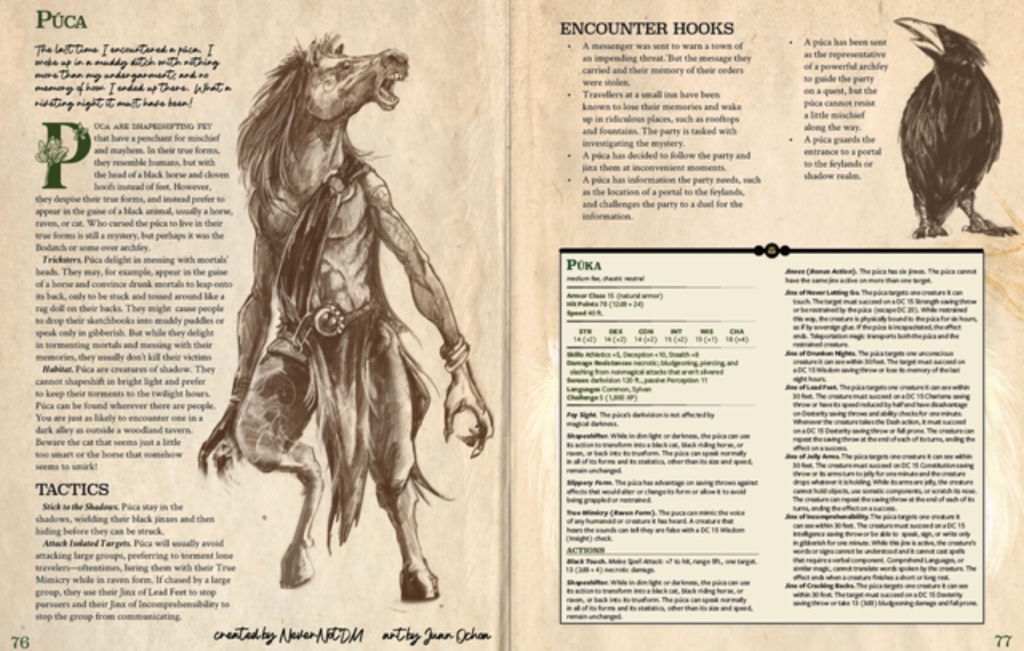
Pùca, sometimes spelled Pooka, is a Celtic spirit andshape-shifter that can take various forms, including horses, rabbits, goats, and humans.
It’s also known as Puck in English Folklore, is sometimes believed to use the light of Will o’ the Wisp to lure people into swamps or ditches and then fleeing with delight.
Depending on circumstances, Pooka may be helpful to humanity, but more often than not, its pranks are damaging and hurtful. It has been said that seeing a Pooka in some form is an omen of imminent death.
It was believed during medieval times Pooka would whisk away little children if they were to go near them.
Púca are said to inhabit wild places like remote thickets and glens. A household would leave a plate of food at night for the púca outside their house or yard; in return, it would do chores during the night and protect the property from fire and trespassers.
During the Celtic Feast of Samhain, it was believed the Pooka, shaped like a horse, would stomp the last seasonal blackberries and offer prophecy and divination to anyone who wished to receive it.
In Old and Middle English the word meant simply “demon.” In Elizabethan lore he was a mischievous, brownie like fairy also called Robin Goodfellow, or Hobgoblin.
As one of the leading characters in William Shakespeare’s Midsummer Night’s Dream, Puck boasts of his pranks of changing shapes, misleading travelers at night, spoiling milk, frightening young girls, and tripping venerable old dames.
Britannica – Puck fairy
